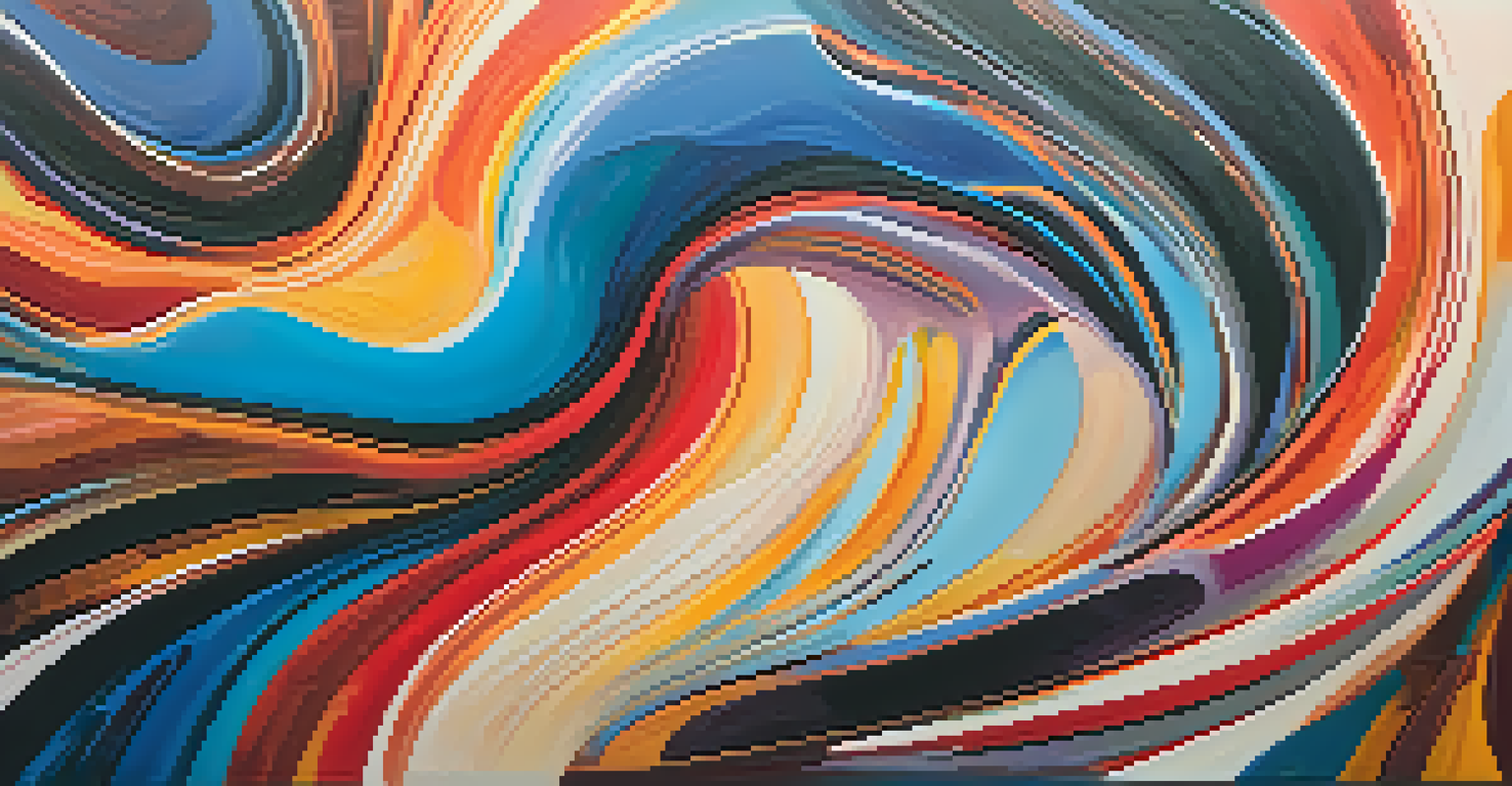Entheogenic Experiences: A Catalyst for Identity Crisis

Understanding Entheogens: A Brief Overview
Entheogens are substances that can induce altered states of consciousness, often used in spiritual, religious, or therapeutic contexts. These experiences can lead to profound insights about oneself and the universe. For many, entheogens serve as a gateway to deeper self-exploration and understanding, prompting questions about identity and purpose.
The mind is everything. What you think you become.
Historically, cultures around the world have utilized entheogens in rituals and ceremonies, linking them to personal and communal identity. The use of substances like psilocybin mushrooms or ayahuasca can open the mind and allow for a re-evaluation of one’s life and values. This cultural backdrop adds richness to our understanding of how these experiences can catalyze identity shifts.
As we delve into the interplay between entheogens and identity, it’s essential to recognize their potential for both positive transformation and challenges. While many individuals report feelings of unity and clarity, others may confront uncomfortable truths about their lives. This duality sets the stage for exploring how these experiences can lead to identity crises.
The Nature of Identity Crisis: What It Means
An identity crisis often arises during significant life transitions, where individuals question their beliefs, values, and sense of self. This can lead to feelings of confusion, anxiety, or even depression as one grapples with reconciling their past with their emerging identity. Understanding this phenomenon is crucial in recognizing how entheogenic experiences can amplify or trigger these feelings.

For instance, a young adult entering the workforce may confront their values when faced with corporate culture, leading to a reassessment of who they are. Similarly, an individual experiencing a major life change, such as divorce, might find themselves questioning their identity. In these moments, the clarity offered by entheogenic experiences can be both enlightening and disorienting.
Entheogens Spark Identity Reflection
Entheogens can trigger deep self-reflection, helping individuals confront and understand their true beliefs and values.
Ultimately, an identity crisis can be a catalyst for growth. By confronting these pivotal moments, individuals may emerge with a more authentic sense of self. This process, while challenging, is often necessary for personal evolution and deeper self-awareness.
How Entheogens Can Trigger Identity Reflection
Entheogens can act as powerful catalysts for self-reflection, providing insights into personal beliefs and values. The altered states of consciousness they induce can strip away societal expectations, allowing individuals to face their authentic selves. This can lead to realizations about what truly matters in life and how one identifies with those values.
We do not see things as they are, we see them as we are.
For example, during an ayahuasca ceremony, participants often report having conversations with their inner selves, revealing hidden fears and desires. This process can unearth long-buried aspects of identity that may have been suppressed due to societal pressures. Such revelations can lead to a significant shift in how one perceives themselves.
However, this process isn’t always smooth sailing. The intense nature of these experiences can also evoke feelings of vulnerability and fear, as individuals confront aspects of themselves they may have long avoided. The resulting identity reflection can be both enlightening and overwhelming, highlighting the dual nature of entheogenic experiences.
Navigating the Challenges of Identity Crisis
While entheogenic experiences can facilitate identity exploration, they can also lead to challenges, such as existential angst and confusion. Many individuals find themselves grappling with the stark contrast between their newly discovered truths and their existing life circumstances. This dissonance can be unsettling and may exacerbate feelings of an identity crisis.
Consider someone who realizes during a psychedelic journey that their corporate job does not align with their passions. This awareness can lead to a period of questioning their career choices and life path, often accompanied by anxiety about the future. Navigating these challenges requires a delicate balance of acceptance and action.
Identity Crises Foster Personal Growth
Navigating an identity crisis can lead to significant personal growth and a stronger, more authentic sense of self.
Support systems, such as therapy or community groups, can play a vital role in helping individuals process their experiences. Engaging in open discussions with others who have faced similar challenges can provide reassurance and guidance. Ultimately, acknowledging these difficulties is essential in transforming an identity crisis into an opportunity for growth.
Personal Growth: The Silver Lining of Identity Crises
Emerging from an identity crisis often brings about significant personal growth. Individuals who navigate these tumultuous waters may find themselves more aligned with their true selves and values. This newfound clarity can open doors to new opportunities and relationships that resonate more deeply with their authentic identity.
For instance, someone who once felt confined by societal norms may embrace a more unconventional lifestyle after their entheogenic experiences. This shift can inspire a sense of freedom and empowerment, encouraging individuals to pursue passions that previously felt out of reach. The journey of self-discovery can be incredibly fulfilling and transformative.
Moreover, personal growth stemming from an identity crisis can foster resilience. By overcoming the challenges associated with redefining oneself, individuals often develop a stronger sense of self and increased emotional intelligence. This resilience serves as a foundation for navigating future challenges, making the journey through an identity crisis worthwhile.
Finding Community: The Role of Shared Experiences
Community plays a crucial role in the journey through entheogenic experiences and identity crises. Sharing insights and challenges with others who have undergone similar journeys can provide validation and support. This sense of belonging can be healing, helping individuals feel less isolated in their struggles.
Many find solace in groups, whether online or in person, where they can discuss their experiences openly. These communities often foster an environment of acceptance, where individuals can explore their identity without fear of judgment. By connecting with others, individuals can share resources, coping strategies, and wisdom gained from their journeys.
Community Supports Shared Journeys
Connecting with others who have had similar experiences provides validation and support during the challenges of identity exploration.
Additionally, shared experiences can lead to collective healing and growth. As individuals come together to reflect on their journeys, they often inspire one another and create a ripple effect of transformation. This interconnectedness not only enriches personal growth but also strengthens the understanding of how entheogenic experiences impact identity.
Conclusion: Embracing the Journey of Self-Discovery
Entheogenic experiences can serve as profound catalysts for identity crises, pushing individuals to confront their true selves. While the journey may be fraught with challenges, it also offers an invaluable opportunity for personal growth and transformation. Embracing this process can lead to a more authentic and fulfilling life.
As individuals navigate the complexities of identity and self-discovery, it’s crucial to approach the experience with openness and curiosity. This mindset can help mitigate the discomfort of an identity crisis and encourage a deeper understanding of oneself. Ultimately, the journey is as important as the destination.

In conclusion, entheogens can illuminate the path to self-discovery, allowing individuals to emerge with a clearer sense of identity. By sharing these experiences and supporting one another, we can foster a community of growth, resilience, and authenticity.